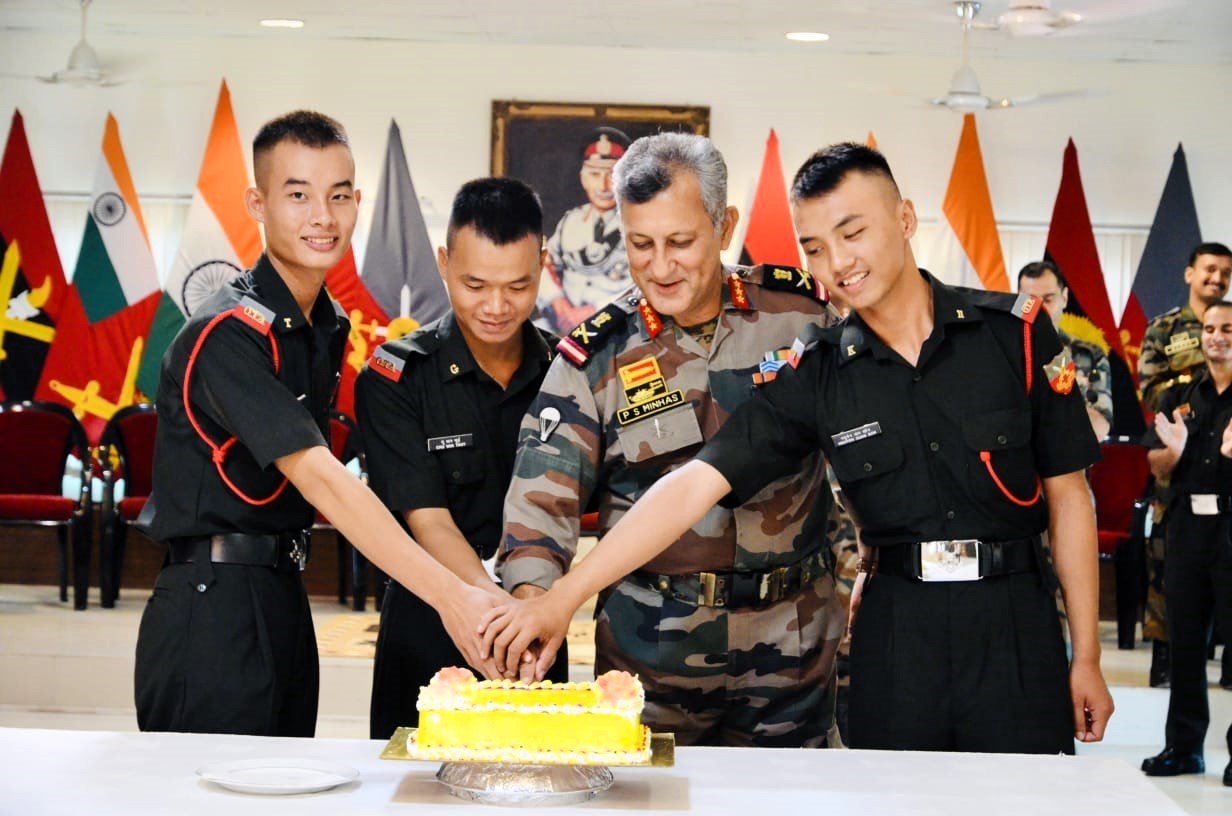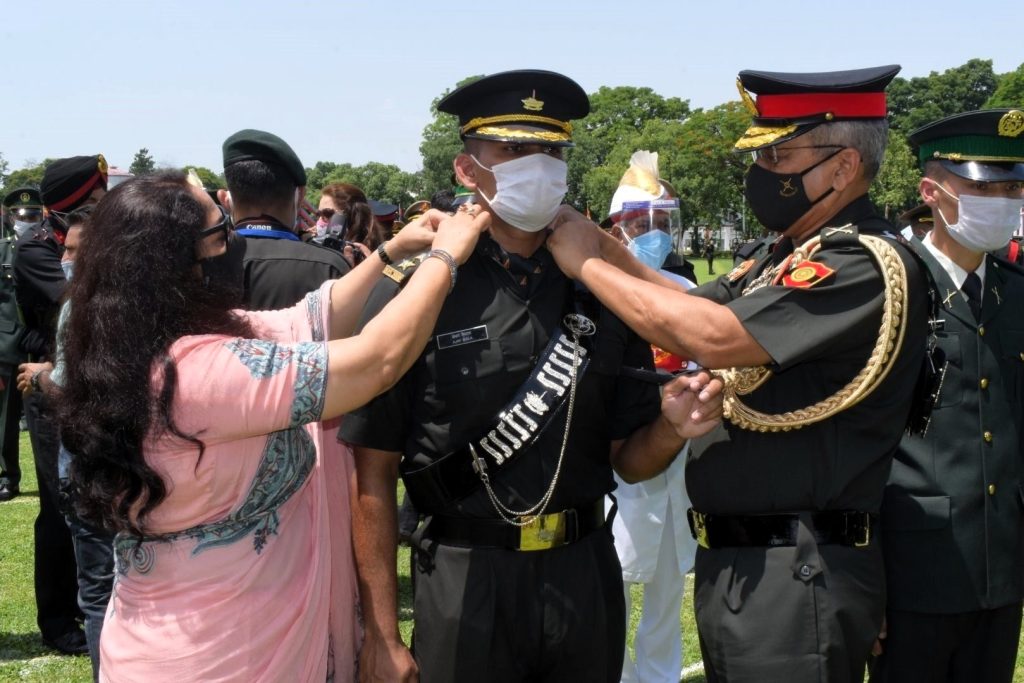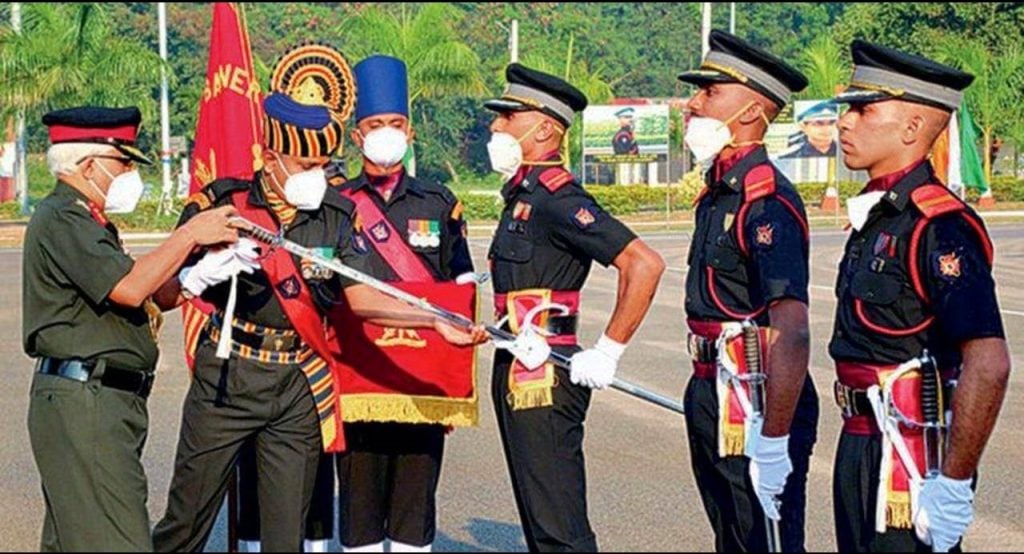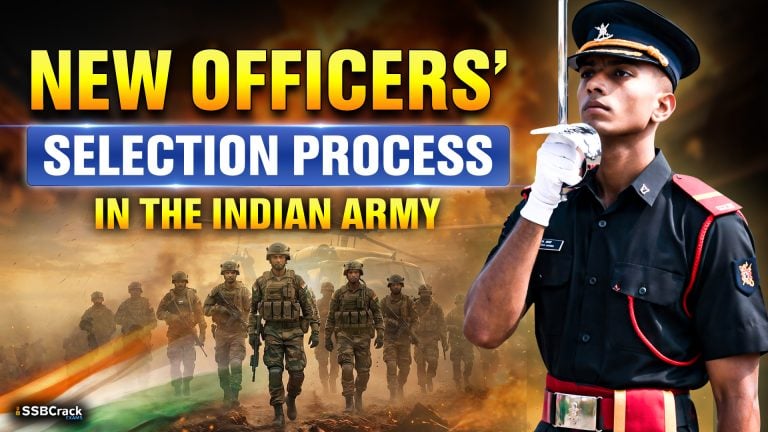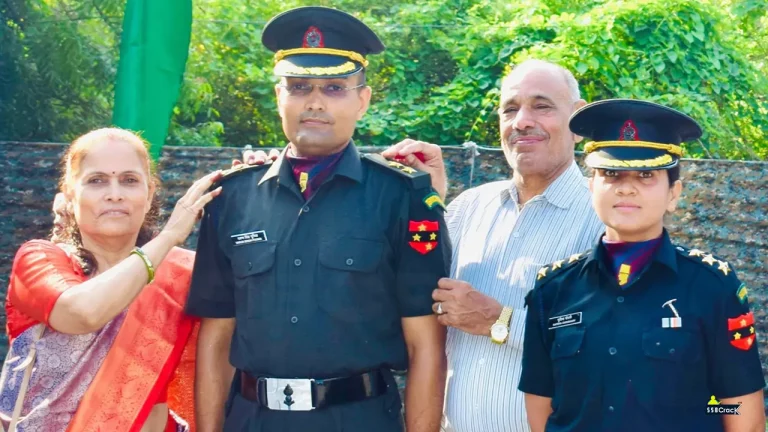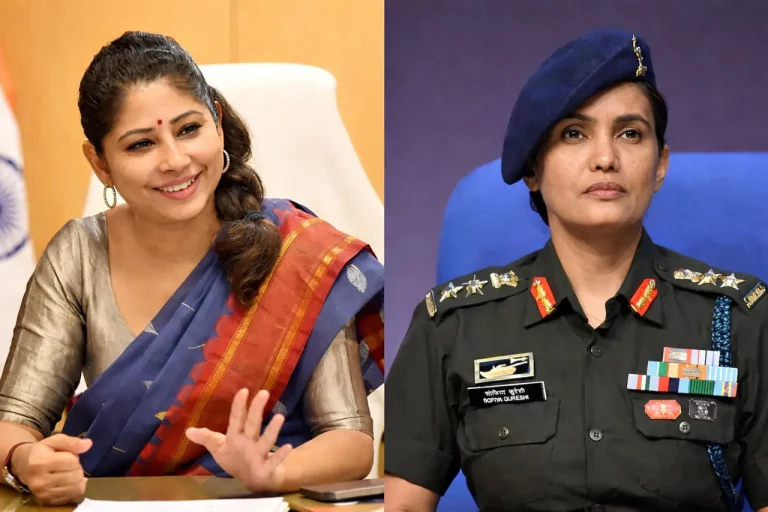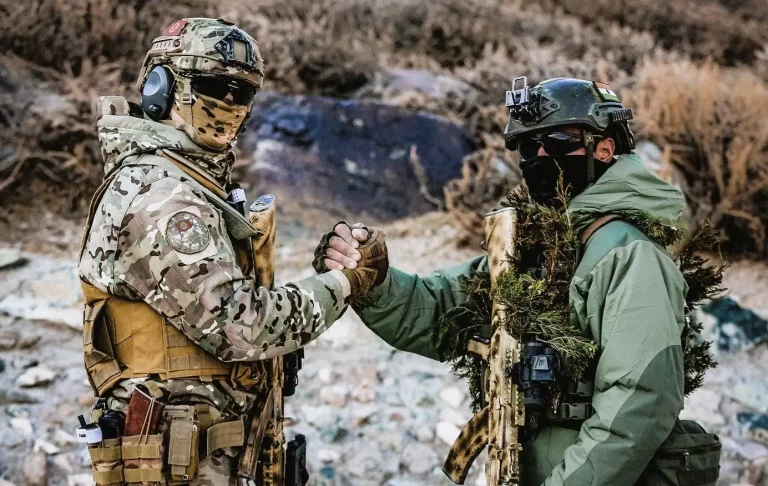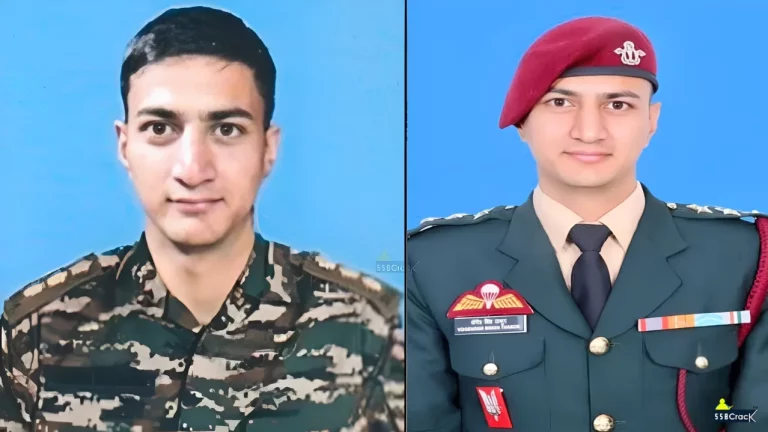A career in the Indian Army is not just a profession; it’s a commitment to honor, sacrifice, and service to the nation. The Indian Army offers a multitude of opportunities across various domains, ranging from combat to engineering, medicine, logistics, and more. Joining the Army isn’t just about a job; it’s about embracing a way of life dedicated to protecting the country’s borders, aiding in times of disaster, and contributing to peacekeeping missions globally. Let’s delve into the roles, responsibilities, qualifications, and the essence of being an Indian Army Officer.
Career in the Indian Army : Posts and Designations
The Indian Army encompasses a hierarchical structure, with diverse roles and responsibilities allocated to officers based on their ranks. Here’s an overview of the key posts and designations within the Career in the Indian Army:
Field Marshal
The highest rank in the Indian Army, entrusted with paramount authority and responsibility.
General
A senior officer tasked with commanding large units or groups of soldiers.
Lieutenant General
Responsible for overseeing operations within a specific geographical area or division.
Major General
Commands a division or brigade, ensuring operational efficiency and readiness.
Brigadier
Commands a brigade or regiment, facilitating effective coordination and execution of missions.
Colonel
Responsible for commanding a battalion or regiment, ensuring discipline and morale.
Lieutenant Colonel
Oversees a company or battalion, ensuring operational preparedness and strategic planning.
Major
Commands a company or serves as a staff officer, playing a crucial role in tactical planning and execution.
Captain
Leads a company, demonstrating exemplary leadership and decision-making skills.
Lieutenant
Undertakes various roles, including commanding a platoon or serving as a staff officer, contributing to operational success.
Career in the Indian Army : Roles and Responsibilities
The Indian Army shoulders multifaceted roles and responsibilities aimed at safeguarding national security and promoting peace. Here’s an insight into its primary functions required in the career in the Indian Army:
Defending the Borders
The foremost responsibility of the Indian Army is to defend the nation’s borders and uphold territorial integrity. Vigilance along the Line of Control (LoC) with Pakistan and the Line of Actual Control (LAC) with China is paramount to deter external threats.
Counterinsurgency and Counterterrorism Operations
Actively engaged in counterinsurgency and counterterrorism operations, particularly in conflict-affected regions like Jammu and Kashmir and the Northeast, to neutralize threats and maintain internal security.
Disaster Relief and Humanitarian Assistance
Playing a pivotal role in providing disaster relief and humanitarian assistance during natural calamities, the Army extends support in rescue operations, medical aid, and logistical assistance to affected populations.
Internal Security Operations
Collaborating with civil authorities to maintain law and order, the Army intervenes in areas plagued by civil unrest or communal tensions, ensuring the safety and security of citizens.
Peacekeeping Missions
Contributing troops to United Nations peacekeeping missions, the Indian Army facilitates conflict resolution and stability in volatile regions globally, promoting international peace and security.
Training and Capacity Building
Conducting regular training exercises and drills to enhance combat readiness, the Army focuses on equipping personnel with requisite skills and knowledge to tackle modern warfare challenges effectively.
Border Infrastructure Development
Involved in the construction and maintenance of border infrastructure, the Army enhances connectivity and mobility along strategic borders, fortifying national defenses.
Career in the Indian Army : Qualifications to Become an Indian Army Officer
The career in the Indian Army entails meeting specific qualifications and undergoing rigorous selection processes. Here’s a glimpse of the entry routes:
Joining After Grade 10:
- National Defence Academy (NDA): Candidates can appear for the NDA exam after completing grade 10, followed by the SSB interview for selection.
- Army Cadet College (ACC): Another pathway involves clearing a written exam and physical test conducted by the SSB for ACC entry.
- Technology Entry Scheme (TES): Requires a minimum of 70% in grade 12 and involves pre-commission and post-commission training.
Joining After Undergraduate Course:
- UPSC-Combined Defence Services (CDS): After completing an undergraduate degree, candidates can appear for the CDS exam followed by a physical test.
- Officers’ Training Academy (OTA): Entry through OTA involves clearing a written exam covering English, General Knowledge, and Elementary Mathematics.
- Technical Entry Scheme (TES): Requires an engineering degree and entails OTA training.
- Short Service Commission (SSC): Requires a bachelor’s degree and involves OTA training.
- Military Law Entry: Requires a law degree from an Indian university for selection.
Career in the Indian Army : Skills Required
The career in the Indian Army, individuals must possess a diverse set of skills essential for effective leadership and operational success:
- Leadership: Demonstrating strong leadership qualities to inspire and motivate teams, make informed decisions, and lead by example.
- Communication: Effectively conveying orders, instructions, and information clearly and efficiently.
- Decision Making: Exhibiting sound judgment and quick decision-making skills, especially in high-pressure situations.
- Adaptability: Adapting swiftly to diverse environments and challenges encountered during missions.
- Physical Fitness: Maintaining peak physical fitness to endure rigorous training and combat situations.
- Problem Solving: Employing critical thinking and problem-solving skills to address challenges effectively.
- Strategic Thinking: Formulating long-term plans and tactics to achieve mission objectives.
- Teamwork: Collaborating seamlessly with unit members to accomplish tasks and missions.
- Resilience: Demonstrating mental toughness and resilience to withstand hardships and adversity.
- Integrity: Upholding the highest ethical standards and integrity in all endeavors.
Career in the Indian Army : Pros and Cons of Being an Army Officer
While a career in the Indian Army offers numerous rewards, it also entails certain challenges. Here’s a balanced perspective:
Pros:
- Job Security: Guaranteed job security throughout one’s tenure in the Army.
- Retirement Benefits: Access to various benefits and pension post-retirement.
- Physical Fitness: Emphasis on lifelong fitness through disciplined routines.
- Respect and Recognition: Earned respect and recognition in civilian society.
Cons:
- Sacrifice of Personal Life: Involves sacrificing time with family and personal pursuits.
- Combat Risks: Exposure to risks and dangers in combat situations.
- Frequent Travel: Relocation and frequent deployments may disrupt personal stability.
In conclusion, a career in the Indian Army is not merely a profession but a calling rooted in honor, sacrifice, and service. It demands unwavering dedication, resilience, and a sense of duty towards the nation. Army Officers epitomize valor, embodying the core values of courage, integrity, and selflessness. Through their selfless service, they not only safeguard the nation’s borders but also inspire generations with their indomitable spirit and unwavering commitment to duty.
FAQs
1. What is the selection process like for joining the Indian Army?
The selection process involves a series of rigorous tests and interviews to assess the candidate’s physical fitness, mental aptitude, and leadership potential. It usually includes a written examination, physical fitness tests, medical examination, and a personal interview.
2. What are the different roles and responsibilities within the career in the Indian Army?
The Indian Army encompasses various roles and responsibilities, including defending the borders, counterinsurgency operations, disaster relief, peacekeeping missions, training, and infrastructure development. Each role contributes to national security and the well-being of citizens.
3. What are the career prospects for Indian Army officers?
Indian Army officers have diverse career paths, with opportunities for specialization, promotions, and leadership roles. They can advance through the ranks based on performance, experience, and qualifications, with avenues for professional development and training.
4. How does the Indian Army contribute to disaster relief efforts?
The Indian Army plays a crucial role in providing disaster relief and humanitarian assistance during natural calamities such as floods, earthquakes, and cyclones. It mobilizes resources, personnel, and equipment to support rescue and relief operations, working alongside civil authorities to mitigate the impact of disasters.
5. What are the benefits of joining the Indian Army?
Joining the Indian Army offers numerous benefits, including job security, retirement benefits, access to healthcare and education facilities, opportunities for adventure and travel, and a sense of pride in serving the nation.
